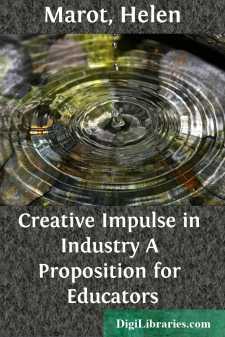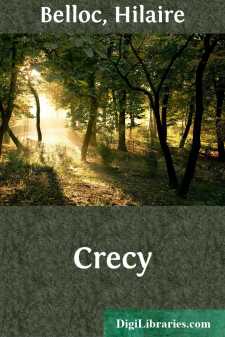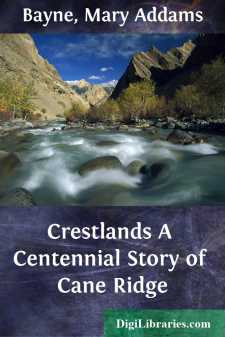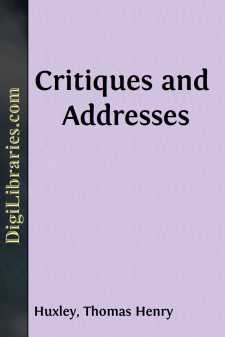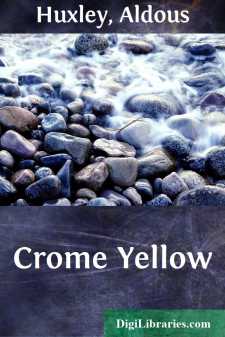Fiction
- Action & Adventure 180
- Biographical 15
- Christian 59
- Classics
- Coming of Age 5
- Contemporary Women 3
- Erotica 8
- Espionage/Intrigue 12
- Fairy Tales, Folklore & Mythology 236
- Family Life 169
- Fantasy 117
- Gay 1
- General 596
- Ghost 32
- Historical 808
- Horror 43
- Humorous 160
- Jewish 25
- Legal 4
- Medical 22
- Mystery & Detective 315
- Political 49
- Psychological 41
- Religious 64
- Romance 159
- Sagas 11
- Science Fiction 730
- Sea Stories 113
- Short Stories (single author) 537
- Sports 10
- Suspense 1
- Technological 8
- Thrillers 2
- Urban Life 31
- Visionary & Metaphysical 1
- War & Military 173
- Westerns 199
Classics Books
Sort by:
CHAPTER I. INTRODUCTORY Among the recollections that are lifelong, I have one as vivid as ever after more than twenty-five years have elapsed; it is of an evening lecture—the first of a series—given at South Kensington to working men. The lecturer was Professor Huxley; his subject, the Common Lobster. All the apparatus used was a good-sized specimen of the creature itself, a penknife, and a...
more...
by:
Helen Marot
CHAPTER I PRODUCTION AND CREATIVE EFFORT As a human experience, the act of creating, the process of fabricating wealth, has been at different times as worthy of celebration as the possession of it. Before business enterprise and machine production discredited handwork, art for art's sake, work for the love of work, were conceivable human emotions. But to-day, a Cezanne who paints pictures and...
more...
by:
Boyd H. Bode
Intellectual advance occurs in two ways. At times increase of knowledge is organized about old conceptions, while these are expanded, elaborated and refined, but not seriously revised, much less abandoned. At other times, the increase of knowledge demands qualitative rather than quantitative change; alteration, not addition. Men's minds grow cold to their former intellectual concerns; ideas that...
more...
by:
Hilaire Belloc
INTRODUCTION Between those last precise accounts of military engagements which antiquity has left us in small number, and what may be called the modern history of war, there lies a period of many centuries—quite 1400 years—during which the details of an action and even the main features of a campaign are never given us by contemporary recorders. Through all that vast stretch of time we are...
more...
CHAPTER I. THE COMING OF THE SCHOOLMASTER The spirit of Indian Summer, enveloped in a delicate bluish haze, pervaded the Kentucky forest. Through the treetops sounded a sighing minor melody as now and then a leaf bade adieu to the companions of its summer revels, and sought its winter's rest on the ground beneath. On a fallen log a redbird sang with jubilant note. What cared he for the lament of...
more...
by:
Benjamin Jowett
CRITIAS. PERSONS OF THE DIALOGUE: Critias, Hermocrates, Timaeus, Socrates. TIMAEUS: How thankful I am, Socrates, that I have arrived at last, and, like a weary traveller after a long journey, may be at rest! And I pray the being who always was of old, and has now been by me revealed, to grant that my words may endure in so far as they have been spoken truly and acceptably to him; but if unintentionally...
more...
by:
John Morley
THE EXPANSION OF ENGLAND. 'There is a vulgar view of politics which sinks them into a mere struggle of interests and parties, and there is a foppish kind of history which aims only at literary display, which produces delightful books hovering between poetry and prose. These perversions, according to me, come from an unnatural divorce between two subjects which belong to one another. Politics are...
more...
CRITICISM EVANGELINE A review of Mr. Longfellow's poem. EUREKA! Here, then, we have it at last,—an American poem, with the lack of which British reviewers have so long reproached us. Selecting the subject of all others best calculated for his purpose,—the expulsion of the French settlers of Acadie from their quiet and pleasant homes around the Basin of Minas, one of the most sadly romantic...
more...
I. ADMINISTRATIVE NIHILISM. (AN ADDRESS TO THE MEMBERS OF THE MIDLAND INSTITUTE, OCTOBER 9TH, 1871.) To me, and, as I trust, to the great majority of those whom I address, the great attempt to educate the people of England which has just been set afoot, is one of the most satisfactory and hopeful events in our modern history. But it is impossible, even if it were desirable, to shut our eyes to the...
more...
by:
Aldous Huxley
CHAPTER I. Along this particular stretch of line no express had ever passed. All the trains—the few that there were—stopped at all the stations. Denis knew the names of those stations by heart. Bole, Tritton, Spavin Delawarr, Knipswich for Timpany, West Bowlby, and, finally, Camlet-on-the-Water. Camlet was where he always got out, leaving the train to creep indolently onward, goodness only knew...
more...



